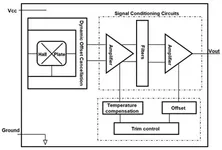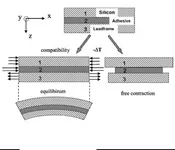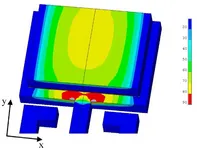
This research work is part of the FIDES Project, funded by the German Federal Ministry of Education and Research (BMBF).
Physical Unclonable Function
The digital world today enables, self-driving cars, connected devices or more generally the Internet of Things. This networking simultaneously increases the requirements for secure and trustworthy embedded devices. As these operate autonomously but add value, they must be able to deal with the problems of physical tampering - from stealing government secrets to manipulating slot machines or hacking bitcoin wallets.
For this reason, there is increasing demand for secured electronic systems with unique fingerprints for individual components to protect against such crime. A system in which critical sensor elements are uniquely fingerprinted not only increases tamper resistance but also prevents substitution by counterfeit components. Developing components, circuit boards, and sensors that provide both a unique fingerprint and tamper protection is a complex undertaking because of this.
We at the Chair of Circuit Design are working on novel concepts to use manufacturing variations of a sensor device as a random signature ('Physical Unclonable Function' - PUF for short). These fluctuations are generated from the impedance of the respective sensor and have to be extracted independent of temperature, humidity and stress.

Physical Unclonable Functions using Hall Sensors
Our goal is to use the random variations resulting from physical variations in the semiconductor device fabrication process to generate cryptographic keys or for authentication.


The work includes the characterization of analog Hall sensors under different climatic and magnetic field conditions with the goal to develop new architectures and the concrete design around PUF-capable Hall sensors and besides their sensor functionality to investigate their suitability as a source for a PUF.
_____________________________________________________________________________________________
`Allegro website
_____________________________________________________________________________________________
``Sebastian Fischer and Jürgen Wilde, Modeling Package-Induced Effects on Molded Hall Sensors, IEEE TRANSACTIONS ON ADVANCED PACKAGING, VOL. 31, NO. 3, AUGUST 2008